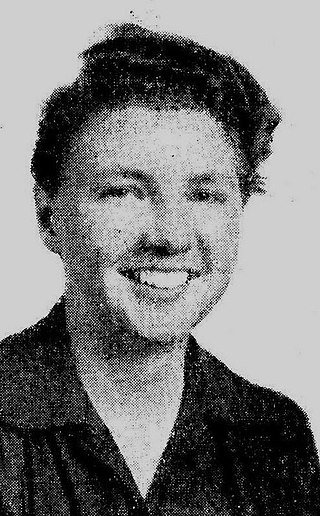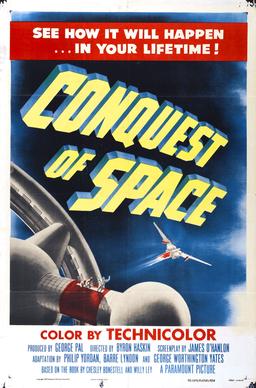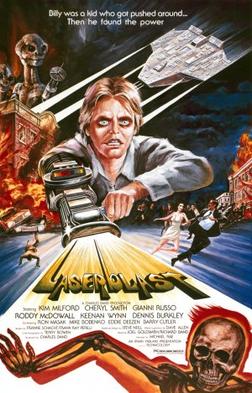Related Research Articles

Lois McMaster Bujold is an American speculative fiction writer. She is an acclaimed writer, having won the Hugo Award for best novel four times, matching Robert A. Heinlein's record. Her novella The Mountains of Mourning won both the Hugo Award and Nebula Award. In the fantasy genre, The Curse of Chalion won the Mythopoeic Award for Adult Literature and was nominated for the 2002 World Fantasy Award for best novel, and both her fourth Hugo Award and second Nebula Award were for Paladin of Souls. In 2011 she was awarded the Skylark Award. She has won two Hugo Awards for Best Series, in 2017 for the Vorkosigan Saga and in 2018 for the World of the Five Gods. The Science Fiction Writers of America named her its 36th SFWA Grand Master in 2019.

Mars, the fourth planet from the Sun, has appeared as a setting in works of fiction since at least the mid-1600s. Trends in the planet's portrayal have largely been influenced by advances in planetary science. It became the most popular celestial object in fiction in the late 1800s, when it became clear that there was no life on the Moon. The predominant genre depicting Mars at the time was utopian fiction. Around the same time, the mistaken belief that there are canals on Mars emerged and made its way into fiction, popularized by Percival Lowell's speculations of an ancient civilization having constructed them. The War of the Worlds, H. G. Wells's novel about an alien invasion of Earth by sinister Martians, was published in 1897 and went on to have a major influence on the science fiction genre.

Leigh Douglass Brackett was an American science fiction writer known as "the Queen of Space Opera." She wrote th screenplays for The Big Sleep (1946), Rio Bravo (1959), and The Long Goodbye (1973). She worked on an early draft of The Empire Strikes Back (1980), elements of which remained in the film; she died before it went into production. In 1956, her book The Long Tomorrow made her the first woman ever shortlisted for the Hugo Award for Best Novel, and, along with C. L. Moore, one of the first two women ever nominated for a Hugo Award.

Alien invasion or space invasion is a common feature in science fiction stories and films, in which extraterrestrial lifeforms invade Earth to exterminate and supplant human life, enslave it, harvest people for food, steal the planet's resources, or destroy the planet altogether. It can be considered as a science-fiction subgenre of the invasion literature, expanded by H. G. Wells's seminal alien invasion novel The War of the Worlds, and is a type of 'first contact' science fiction.

Devil Girl from Mars is a 1954 British second feature black-and-white science fiction film, produced by the Danziger Brothers, directed by David MacDonald and starring Patricia Laffan, Hugh McDermott, Hazel Court, Peter Reynolds, and Adrienne Corri. It was released by British Lion, and released in the United States the following year. A female alien is sent from Mars to acquire human males to replace their declining male population. When negotiation, then intimidation, fails she must use force to obtain co-operation from a remote Scottish village where she has landed her crippled flying saucer.

Destination Moon is a 1950 American Technicolor science fiction film, independently produced by George Pal and directed by Irving Pichel, that stars John Archer, Warner Anderson, Tom Powers, and Dick Wesson. The film was distributed in the United States and the United Kingdom by Eagle-Lion Classics.

Conquest of Space is a 1955 American Technicolor science fiction film from Paramount Pictures, produced by George Pal, directed by Byron Haskin, that stars Walter Brooke, Eric Fleming, and Mickey Shaughnessy.
The Golden Duck Awards for Excellence in Children's Science Fiction were given annually from 1992 to 2017. The awards were presented every year at either Worldcon or the North American Science Fiction Convention (NASFiC). In 2018 they were replaced by Notable Book Lists of the same names sponsored by the Library and Information Technology Association (LITA).

Laserblast is a 1978 American independent science fiction film directed by Michael Rae and produced by Charles Band, widely known for producing B movies. Starring Kim Milford, Cheryl Smith and Gianni Russo, featuring Keenan Wynn and Roddy McDowall, and marking the screen debut of Eddie Deezen, the plot follows an unhappy teenage loner who discovers an alien laser cannon and goes on a murderous rampage, seeking revenge against those who he feels have wronged him.

Captain Video: Master of the Stratosphere is an American adventure horror science fiction film 15-chapter serial released by Columbia Pictures in 1951. It was directed by Spencer Gordon Bennet and Wallace A. Grissel with a screenplay by Royal G. Cole, Sherman I. Lowe and Joseph F. Poland, based on a treatment by George H. Plympton. The serial is unique for several reasons--- in particular, it is the only film serial ever based on a television program, Captain Video and His Video Rangers.

Jupiter, the largest planet in the Solar System, has appeared in works of fiction across several centuries. The way the planet has been depicted has evolved as more has become known about its composition; it was initially portrayed as being entirely solid, later as having a high-pressure atmosphere with a solid surface underneath, and finally as being entirely gaseous. It was a popular setting during the pulp era of science fiction. Life on the planet has variously been depicted as identical to humans, larger versions of humans, and non-human. Non-human life on Jupiter has been portrayed as primitive in some works and more advanced than humans in others.

The Man from Planet X is a 1951 independently made American black-and-white science fiction horror film, produced by Jack Pollexfen and Aubrey Wisberg, directed by Edgar G. Ulmer, that stars Robert Clarke, Margaret Field, and William Schallert. The film was distributed by United Artists.
Avalon Books was a small New York-based book publishing imprint owned by Thomas Bouregy & Company.

Invisible Invaders is a 1959 American science fiction film starring John Agar, Jean Byron, John Carradine and Philip Tonge. It was produced by Robert E. Kent, directed by Edward L. Cahn and written by Samuel Newman.
The year 1953 was marked, in science fiction, by the following events.
The year 1955 was marked, in science fiction, by the following events.
The year 1959 was marked, in science fiction, by the following events.
References
- ↑ "David Bradley Biography". Indiana University.
- ↑ Mannikka, Eleanor. "12 to the Moon". AllMovie. Retrieved 2009-03-27.
- ↑ Pratt, Douglas (2004). Doug Pratt's DVD: Movies, Television, Music, Art, Adult, and More!. Vol. 1 (A-K). UNET 2 Corporation. p. 92. ISBN 978-1-932916-00-3.
- ↑ Lisanti, Tom (2003). Drive-in dream girls: a galaxy of B-movie starlets of the sixties. McFarland. pp. 172–180. ISBN 978-0-7864-1575-5.
- ↑ Weaver, Tom (2002). Science fiction confidential: interviews with 23 monster stars and film makers. McFarland. p. 296. ISBN 978-0-7864-1175-7.
- ↑ Blockbuster Entertainment Staff (1998). The Blockbuster Entertainment Guide to Movies and Videos: 1999 Edition. Island Books. ISBN 978-0-440-22598-0.
- ↑ "1960 Hugo Awards". World Science Fiction Society. 2007-07-26. Archived from the original on 2011-05-07. Retrieved 2010-04-19.